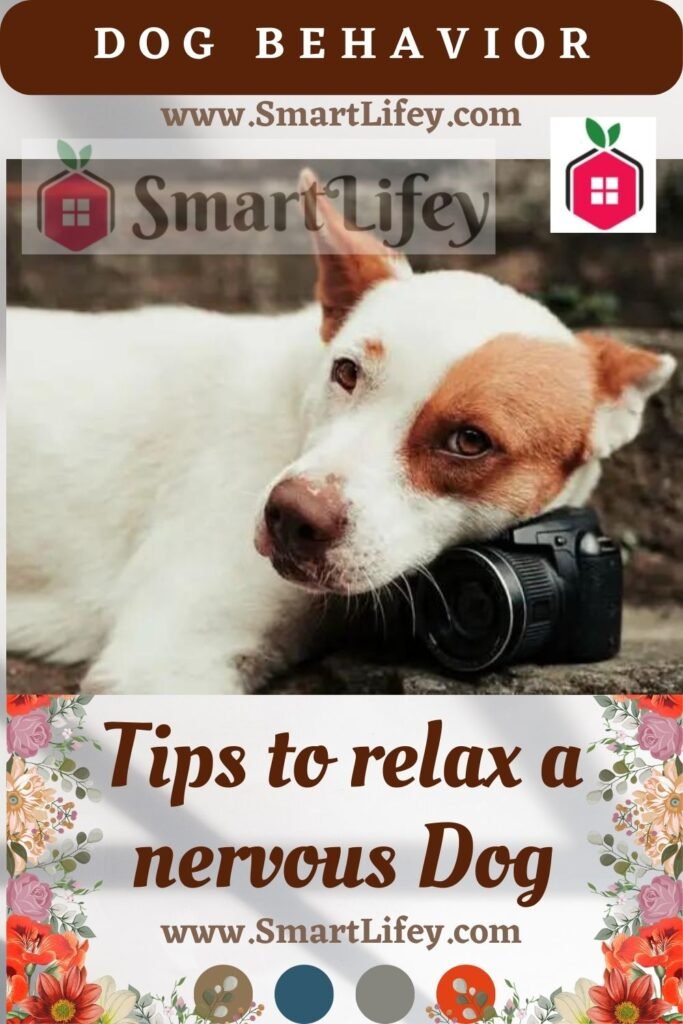Physical exercise and avoiding rough games are two guidelines that should be followed to get the dog to be more relaxed

A dog that from one year of age shows excessively restless, sleeps badly, is too thin and is very active presents a behaviour problem. The dogs too nervous usual suffering stress of genetic, environmental and educational factors. But owners can help reduce their dog’s nervousness with the six guidelines below.
Nervous dogs, stressed dogs
A nervous dog is a stressed dog and is characterized by sleeping little, being rebellious, breaking things at home, being too thin and having disproportionate reactions to stimuli such as certain noises (the bell).
That the puppy dog is more nervous and active is normal, but the usual thing is that from one year of age it calms down
These behavioural problems decrease their quality of life and affect the coexistence with the owners. Therefore, the sooner the problem of nervousness in the dog is detected and treated, the better results will be obtained. The best age to re-educate a dog with nervousness problems is before six months of age. To do this, at home the following six guidelines can be taken into account , in order to reduce the degree of stress on the dog and make it more relaxed .
1. Why is the dog nervous?
The first step is to find out the cause of the dog’s nervousness. A dog can be very nervous for genetic, environmental, or educational reasons. It must be taken into account that in some cases the animal can be hyperactive, hence its nervousness, and then it will need drug treatment. For this reason, it is important to go to the vet with the dog that is nervous to rule out problems of another type such as hyperactivity.
Sometimes, owners reinforce the nervousness of their dogs unconsciously. If we come home and the dog greets us with jumps and runs and we pet him and pay attention, we reaffirm the fact that he is out of control.
2. Exercise against dog stress
Physical exercise outside the home helps the animal to be more relaxed at home. A dog who takes long walks every day, runs and jumps in the park will sleep better and longer, as well as being less nervous.
3. Games to avoid with the nervous dog
Nervous dogs need long walks and physical exercise to relax
Nervous dogs should also avoid certain activities at home that may involve too much activity. Activities within the home should be focused on the rules of canine obedience, such as teaching him to sit or lie down and offering him a reward in return.
Games like running after the ball or jumping are better left for when you go outside, advises the ethologist. In this way, we reinforce serene and calm behaviour, and not nervousness at home.
4. Treatment for nervous dogs
The hormonal compounds with certain flavours help the animal is more relaxed. The olfactory pheromones released by the bitch when nursing her puppies calm the dog. For this reason, companies that market canine products have packaged them so that these animals can benefit from their relaxing effects. However, pheromones with relaxing effects for dogs are not effective for a nervous animal, unless it is combined with other actions to avoid its nervousness.
5. Canine educators that help the nervous dog
Another guideline is to go to the canine behaviour specialist when the dog’s nervousness persists. A very active and playful puppy is normal. But after one year, if the nervousness persists in such a way that it prevents a smooth coexistence between owners and dog, it is advisable to consult the veterinarian. The canine health specialist will decide if it is necessary to refer the animal to a canine educator.
6. Against dog stress, a united family
The whole family should use the same behaviour guidelines with the dog. In this way, inconsistencies that cause the dog to be more nervous are avoided. It is the case of adopting the same rules regarding the duration of the walks or the types of games that it is more advisable to practice with the dog.
Problems for nervous dogs

Nervous dogs often have added problems such as stress. But they are also characterized by being very thin dogs. The reason is that they use up all the energy they consume, due to their high degree of activity and stress.
The fact that the nervous dog eats in a rush can also lead to digestive problems. For this reason, on certain occasions, after eating very quickly, they can vomit. But the most serious thing that can happen to a nervous dog that eats too fast is a stomach twist . When an animal’s stomach becomes blocked, a dog can die from suffocation. To avoid this, it is recommended that you do not eat before or after exercising.
